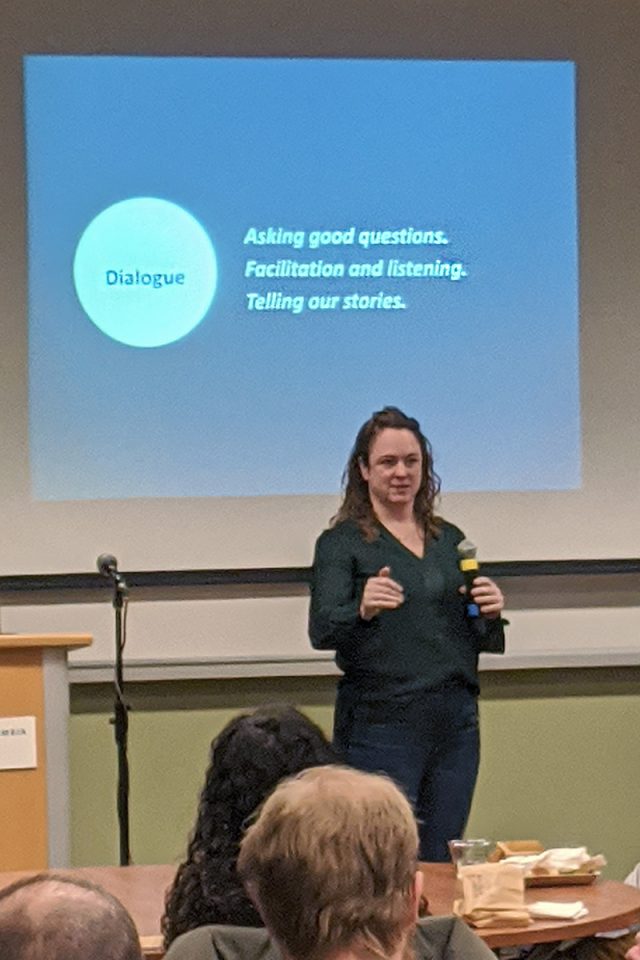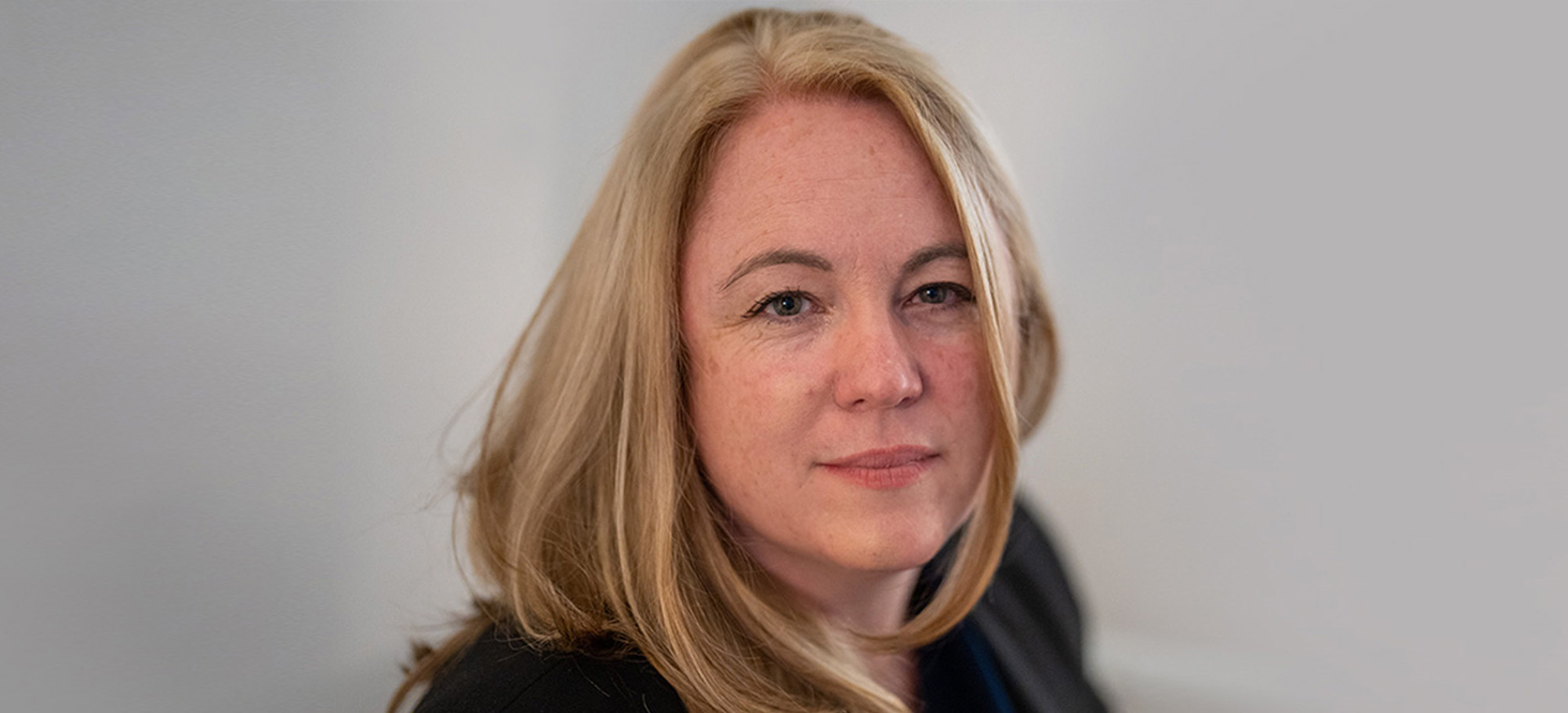Pamela Wolf, P.Eng. and Assistant Professor of Teaching in our Department, intimately understands how changing the systems around us can change how people live.
She’s worked with planners in Ghana and Engineers Without Borders to decolonize infrastructure decision-making systems, and seen the profound impact that skilled dialogue can have on the people who are most affected by those decisions.

She witnesses the growth in her UBC students every year as she guides them towards practicing systems thinking, through her civil engineering courses and initiatives such as the Reconciliation + Design dialogue series, to make engineering a more inclusive, equitable profession.
Lead author of the book Decolonizing the Engineering Curriculum, as well as an Engineers Canada report on truth and reconciliation in engineering education, Wolf acknowledges the scale of the challenge to decolonize engineering can feel overwhelming, but is confident that actionable steps are possible.
“For me, creating inclusion in engineering is creating a set of actions to recognize many perspectives, and to bring these perspectives together in ways that will make a material difference to people,” said Wolf.
“And when we begin to make those changes — when we integrate different perspectives into our curriculum, or make cultural touchpoints like the Iron Ring ceremony inclusive — we’re taking substantial steps to make engineering a more welcoming and just profession.”
Wolf’s leadership and practice in fostering inclusion and belonging within engineering education at UBC is now being recognized with the Faculty of Applied Science’s inaugural Inclusion and Belonging Award.
As an uninvited settler living and teaching on Musqueam territory, Wolf is particularly conscious of her responsibility as an educator to understand and amplify Indigenous voices. She also wants to equip students with the practical communication skills needed to welcome diverse perspectives.
The annual Reconciliation + Design dialogue series, which is open to all and which Wolf has co-led since 2019, is one such endeavour to do both.
“For me, creating inclusion in engineering is creating a set of actions to recognize many perspectives, and to bring these perspectives together in ways that will make a material difference to people.”
Invited speakers are Indigenous change-makers who share their cultural perspectives on engineering design. Student facilitators lead smaller dialogue circles after each guest speech and attendees work on weaving Indigenous ways of knowing into their own perspectives.
Wolf points to this work of holding space for complex conversations as a practical communication tool that students can carry as they move into the wider world.
“As educators and as engineers, we are in systems change level positions. Every one of us is welcome in this space and in this work, to choose which voices we share, what gifts we give to our students.
“We are able to show our students what it is to joyously welcome different people into our community, then have them go out into the world to joyously welcome the different perspectives around them.”
